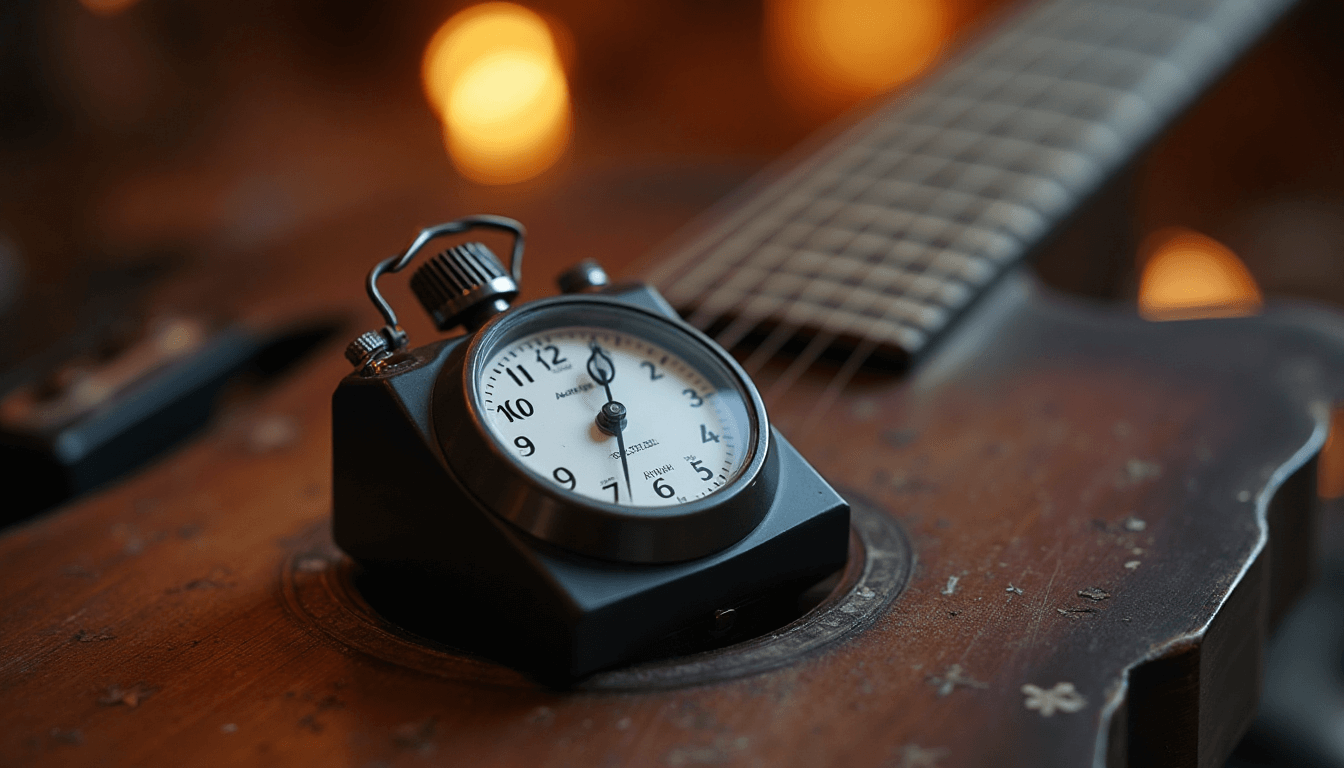Oct 28, 2024 10:24:22 PM
Fix Annoying String Buzz and Muted Strings while Playing Guitar

Understanding the Causes of String Buzz
String buzz is an unwelcome guest in the realm of guitar playing. This issue can arise due to various factors, and understanding these causes is the first step toward an effective guitar buzzing fix. String buzz often occurs when the strings vibrate against the frets, producing a sound that's more akin to a bee's hum than the melodious tune you envision.
One common culprit behind string buzz is improper string height, known as 'action.' If the strings are too close to the fretboard, they are likely to buzz. Additionally, worn-out frets may unevenly affect string vibration, causing unclear sound. Environmental factors like humidity can also play a role by warping the guitar's neck.
Sometimes, the cause of string buzz might simply be technique-related. Pressing too softly or incorrectly on the strings can result in that dreaded chord buzz.
Common DIY Fixes for String Buzz
If you're plagued by string buzz, don't fret! There are numerous DIY solutions that can help you achieve a guitar buzzing fix. Firstly, check the action of your guitar. Adjusting the truss rod to alter the neck's curvature can often resolve issues with string height and eliminate the buzz.
One more effective fix is to ensure your frets are even. Run a fret rocker along the fretboard; if you find uneven frets, they may need leveling or crowning, a common task even for home luthiers. Additionally, changing the gauge of your strings may reduce buzz. Heavier strings have more tension, reducing the likelihood of them hitting the frets.
Identifying Muted Strings and their Triggers
Muted strings are another common issue that can dampen your playing experience. Unlike string buzz, muted strings are characterized by their inability to produce a clear, sustained note. This issue often leaves guitarists frustrated, as the desired sound fails to resonate.
One primary trigger of muted strings is improper finger placement. If a finger is inadvertently resting on an adjacent string, it can cause that string to produce a muffled or muted sound. Additionally, excessive pressure on the fret can result in unclear sound.
Consider the last time you experienced tab buzz while learning a new song. Was your guitar properly tuned? Sometimes, a muted string might be a result of tuning discrepancies, making checking your instrument's tuning a simple yet effective step.
Techniques to Clear Muted Sounds
The first step is to refine your finger placement. Ensure your fingers are pressing down firmly and squarely on the strings, avoiding contact with adjacent ones.
Practice deliberate finger exercises that enhance strength and dexterity. This not only helps in clearing muted sounds but also improves overall playability. Additionally, consider using a lighter touch on the frets; sometimes, too much pressure can lead to muted sounds.
Your technique might also benefit from a focus on hand positioning. Adjust your wrist and elbow to maintain optimal alignment with the fretboard.
When to Seek Professional Help for Guitar Sound Issues
While DIY solutions can often resolve minor string buzz and muted string issues, there are times when seeking professional help becomes necessary. If you've tried multiple fixes and still hear unclear sound, or if the guitar's neck seems warped beyond your adjustment capabilities, it's time to consult a guitar technician.
Local guitar shops or some experienced guitar tutor in your area could have the tools and expertise to perform adjustments and repairs beyond the average guitarist's skill set. They can accurately diagnose issues such as warped necks, uneven frets, or improperly installed hardware. This is particularly important if your guitar continues to emit chord buzz despite your best efforts.
Regular check-ups can prevent minor quirks from developing into significant problems, ensuring your guitar remains a source of joy rather than frustration.

The 15-Minute Guitar Ritual That Transforms Beginner Guitarists without Endless Practice

Guitar Picking Mechanics: Master Speed and Dexterity Today

The Backwards Guitar Revolution: Why I Turned Traditional Teaching Upside Down